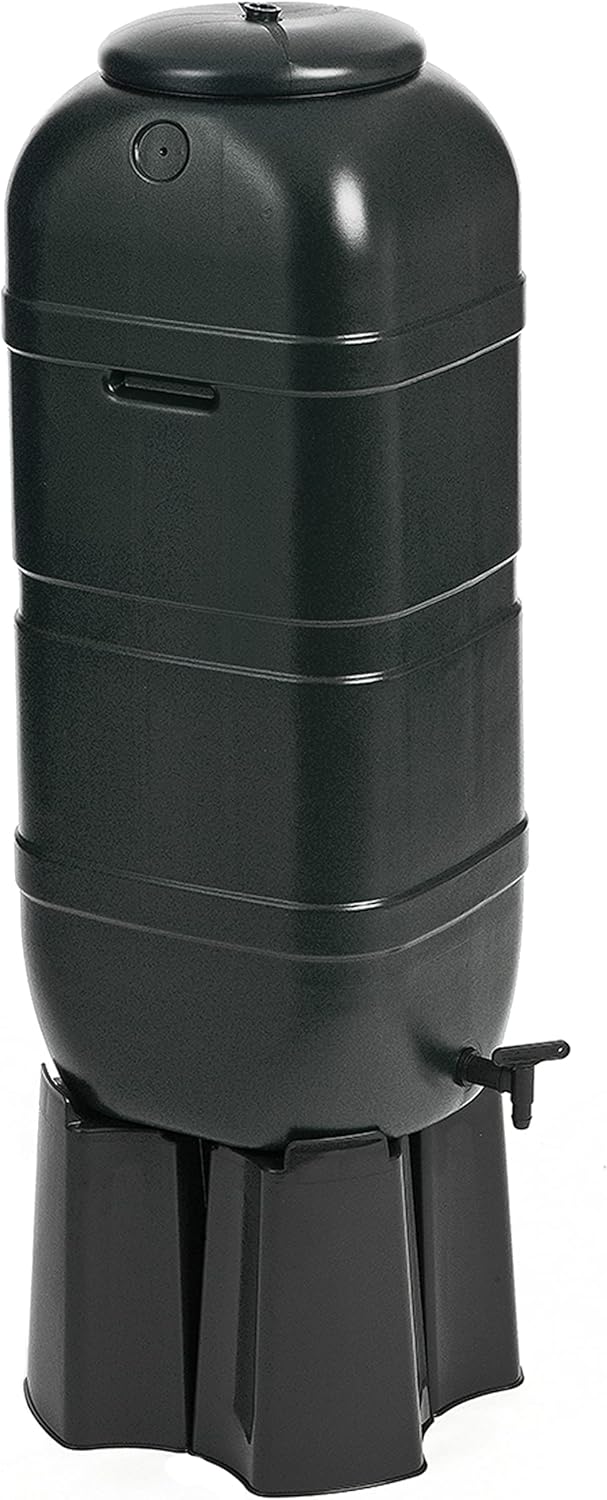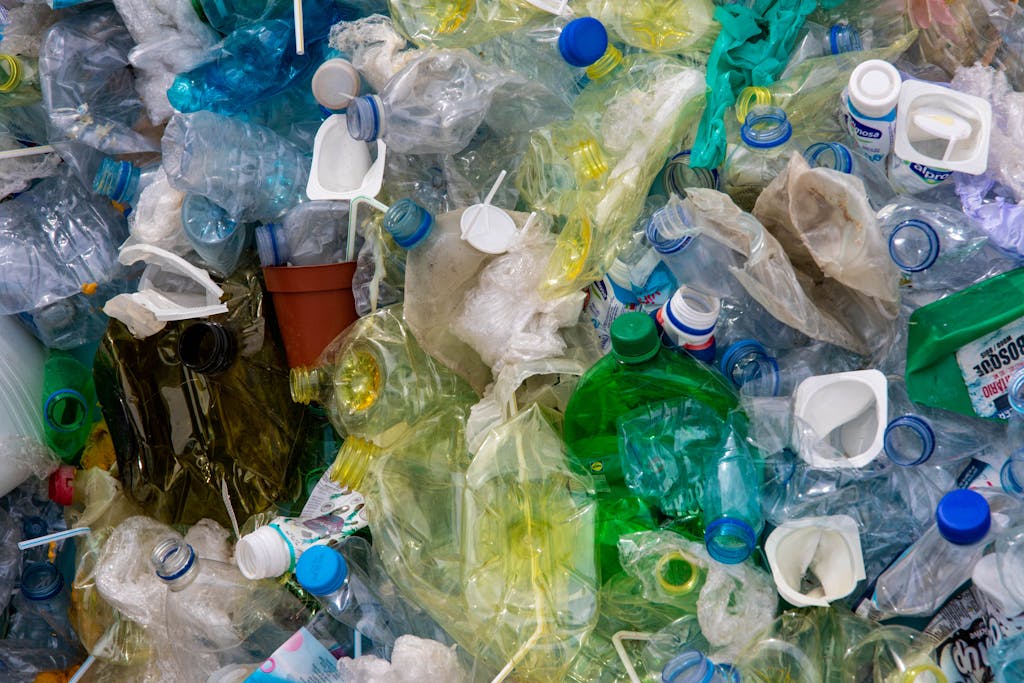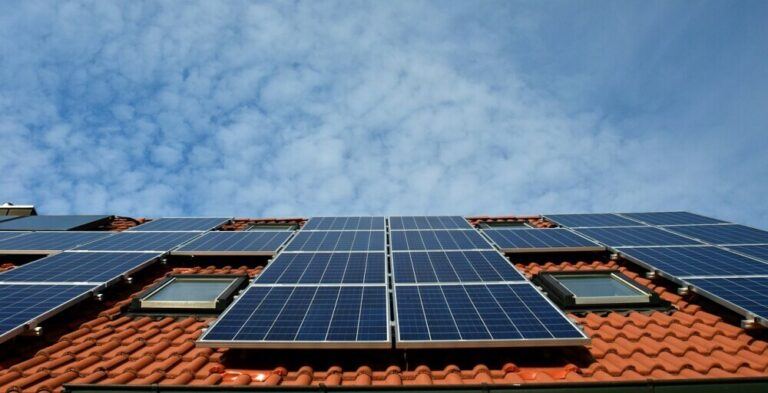How To Be More Sustainable: A Step-by-Step Guide
If you’re becoming increasingly aware of the environmental challenges we face and have the desire to make small changes that have a positive impact on the planet, then this post is for you. We can all appreciate that it would be difficult to revolutionise our lifestyles overnight, but it is important to realise that every small step towards a more sustainable lifestyle counts. So with this in mind, I thought I’d start off the New Year with an easy step-by-step guide on how to be more sustainable. Hopefully, you can incorporate these practical and easy-to-follow tips into your daily routine over time and can appreciate how these simple changes can make a significant difference in protecting our planet.
Being eco-friendly doesn’t have to mean overhauling your whole life; it’s about making small, meaningful changes that collectively contribute to a healthier planet. In this guide, we’ll provide you with tips that are not only easy to follow but also offer tangible benefits for both you and the environment.
Affiliate Disclosure: This post contains affiliate links. As an Amazon associate, I earn from qualifying purchases. This means I may earn a commission should you choose to make a purchase using my link. But don’t worry, you won’t pay any more buying through my links and I have sourced and highlighted products that I believe you may find useful in this post.
Tip 1: Rethink Your Energy Consumption

Start by assessing your energy usage. It’s as simple as switching to energy-efficient light bulbs and turning off appliances when not in use. These small adjustments not only lower your utility bills but also reduce your carbon footprint. It’s a win-win for your wallet and the planet.
Tip 2: Embrace the Five Rs: Refuse, Reduce, Reuse, Repurpose, Recycle

The five Rs approach of “refuse, reduce, reuse, repurpose, recycle” is a great way to reduce waste. Being mindful of your purchases and refusing to buy things you don’t need and opting for products with minimal packaging is a great start. Reuse and repurpose items where possible, and set up a recycling station at home. These steps might seem small, but collectively, they make a significant impact on reducing landfill waste.
Tip 3: Sustainable Shopping Habits
When it comes to shopping, consider the environmental impact of your choices. Support businesses that prioritise sustainability, choose products made from recycled materials, and look for eco-friendly certifications. My posts on Sustainable Home Decor Brands and Eco-Friendly Furniture Stores provide links to some great brands. Small shifts in your consumer habits can encourage a shift toward more sustainable practices across industries.
Tip 4: Water Conservation in Daily Life

Conserving water is not just about turning off the tap while brushing your teeth; it’s about cultivating water-conscious habits. Fix leaks promptly, collect rainwater for plants, and install water-saving fixtures. By incorporating these changes, you contribute to the preservation of one of our most precious resources.
Tip 5: Green Your Indoor Space with Plants

Bringing a touch of nature indoors not only adds aesthetic appeal but also improves air quality. Consider incorporating houseplants into your living spaces. They act as natural air purifiers, removing pollutants and enhancing your overall well-being. It’s a simple yet effective way to create a healthier home environment.
Tip 6: Choose Eco-Friendly Cleaning Products

Swap out harsh chemical cleaners for eco-friendly alternatives. Many household cleaning tasks can be accomplished using natural ingredients like vinegar, baking soda, and lemon. If you prefer to buy cleaning products rather than make your own, then look for eco-friendly brands. Not only do these alternatives reduce your exposure to harmful chemicals, but they’re also kinder to the environment.
Tip 7: Mindful Water and Energy Usage in the Kitchen
The kitchen is the heart of the home and it offers plenty of opportunities for eco-friendly changes. Being mindful of water usage while washing dishes, using energy-efficient appliances, and composting kitchen scraps are all effective eco-friendly practices. They not only align with sustainability but also contribute to a more conscious and mindful approach to daily tasks.
Tip 8: Sustainable Landscaping for Outdoor Spaces

If you have outdoor spaces, consider making them more eco-friendly. Choose native plants that require less water and maintenance. Collect rainwater in a water butt for watering your plants, and avoid harmful pesticides. Your outdoor oasis can be both beautiful and environmentally responsible with a few thoughtful choices.
Tip 9: Educate and Inspire Those Around You
Your journey toward a more eco-friendly lifestyle doesn’t have to be a solo adventure. Share your experiences with friends, family, and neighbours. Lead by example and inspire others to make small changes in their lives. The more people on board, the greater the collective impact we can have on protecting the planet.
Conclusion: Every Small Change Counts
In conclusion, making sustainable changes is not an all-or-nothing endeavor. It’s about the cumulative effect of numerous small changes. By incorporating these practical tips into your daily life, you’re not just making a difference for the environment; you’re creating a ripple effect of positive change. Remember, every small change counts, and together, we can build a more sustainable future for generations to come.
I hope you found some of these tips helpful and you are inspired to make some of the suggested changes. I would love to hear about your experiences regarding sustainable living. If you’d like to share your thoughts, please leave a comment below.
Elaine








Hi Elain
What a wonderful article. I like the structure of your article and how beautifully you have incorporated your images. I also like your conclusion ” Every small change counts”. This reminds me of the saying ” A river is made of streams”. Its these small changes that really contribute to huge changes or benefits. Instead of buying plastic bags at the supermarket when doing groceries it would help to carry our bags that we can reuse again and again. Like you saying that can reduce the impact on landfills. Proactive maintenance can also help. Change underground water pipes before the rot and start leaking.
There is a lot as you have indicated that can be done. Thank you for sharing
Ricard
Thank you for your comments Ricard. I am pleased you enjoyed it and as you say, “a river is made of streams” so if we make one or two changes each then colletively they will add up to make a great diference in protecting our planet.
Your step-by-step guide to being more sustainable at home is incredibly informative! I appreciate the practical tips you’ve provided, especially focusing on reducing waste and choosing eco-friendly products. Have you encountered any challenges when trying to implement these changes? Personally, transitioning to sustainable products was a gradual process, but it’s been rewarding. I’m curious if you have any additional tips for reducing energy consumption or making sustainable choices when it comes to home appliances.
The emphasis on small, consistent changes is essential. It’s about progress, not perfection. I’ve found that involving my family in these sustainable practices has made it a collective effort and sparked insightful discussions. How do you suggest encouraging others, especially children or roommates, to embrace these eco-friendly habits without feeling overwhelmed? Thank you for this insightful guide—it’s a valuable resource for anyone aiming to lead a more sustainable lifestyle!
Thank you for your comments. I’m pleased you found the post informative. I haven’t found any of the changes I have undertaken to be too challenging, largely because I have made changes gradually over time. I still need to work on making my outdoor spaces more sustainable.
I will be posting an article shortly about how to get the family on-board. I have two teenagers at home who, although they are environmentally conscious, they can sometimes be forgetful – ie leave lights on when they exit a room, put recycling in the wrong place etc. My main tip would be to have simple systems that make it easy for them and as you say, make it a collective effort.